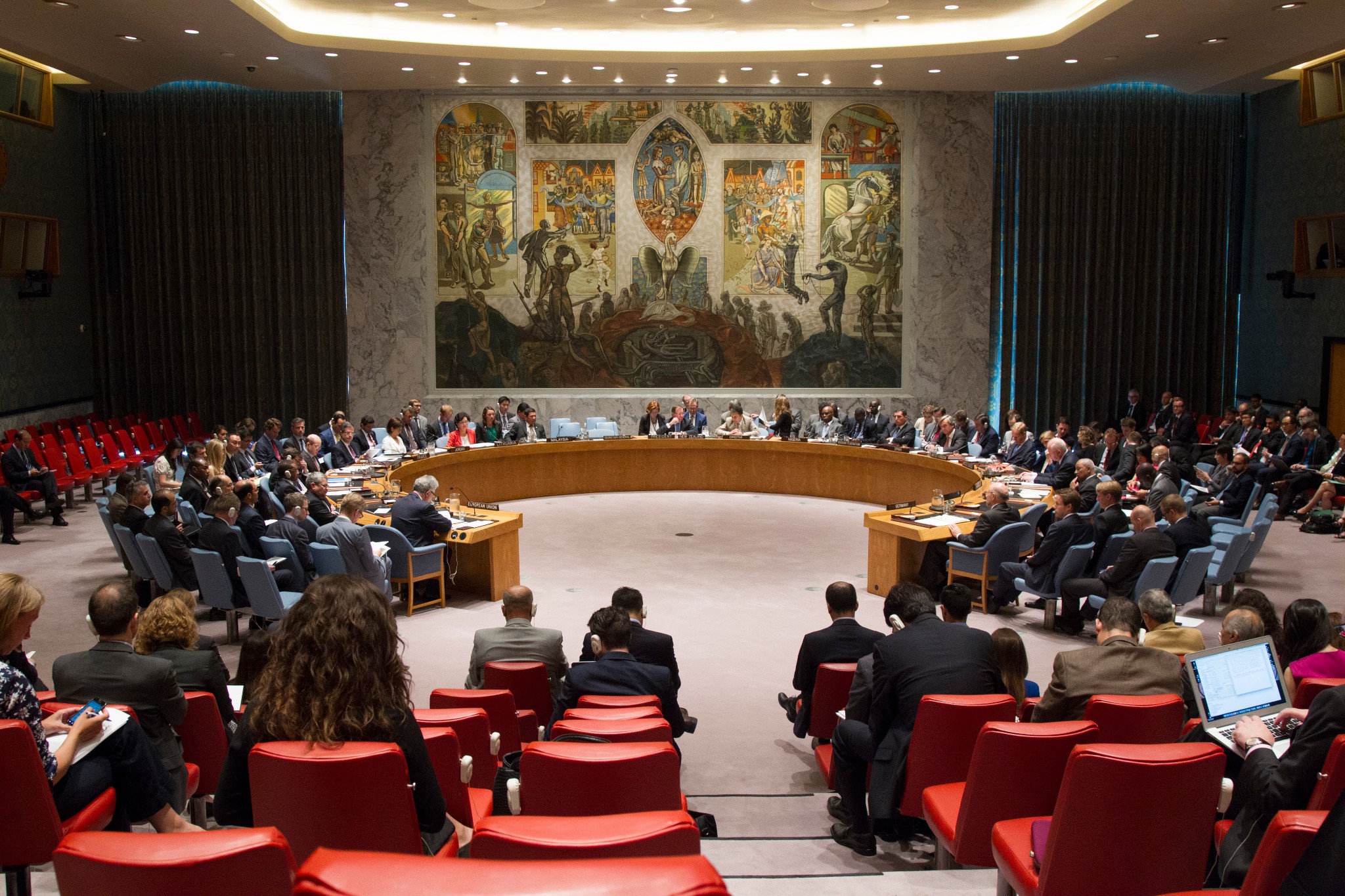 Security Council Adopts Resolution on Iran Nuclear Deal (UN Photo / Loey Felipe)
Security Council Adopts Resolution on Iran Nuclear Deal (UN Photo / Loey Felipe)
I Think We’re Alone Now: The U.S. and the Iran Nuclear Deal
Members of the U.N. Security Council (UNSC) officially have until September 20 to file a resolution against “snapback sanctions” on Iran initiated by U.S. Secretary of State Mike Pompeo, citing Iran’s violation of the terms of the 2015 Joint Comprehensive Plan of Action (JCPOA) — more commonly known as the Iran Nuclear Deal. The U.S. has made clear that as a permanent member of the UNSC, it will promptly veto or vehemently block any attempts to oppose the sanctions. However, no matter the outcome, unilateral U.S. action has already come at the cost of international support from the closest American allies in the UNSC.
To Sanction or Not to Sanction
Before the JCPOA, multilateral U.N. sanctions specifically aimed at Iran’s arms trade and nuclear program became crucial in pushing Iran to the negotiating table. Per the 2015 agreement, which had the international goal of slowing the country’s progress toward a nuclear weapon, Iran agreed to nuclear restrictions in exchange for significant sanctions relief.
Experts and state parties hailed the JCPOA as an international success, despite some U.S. domestic pushback. In May 2018, after voicing repeated disdain for the agreement, President Trump officially withdrew the U.S. from the deal in favor of a “maximum pressure” economic and oil-related sanctions campaign with the intention of forcing Iran to negotiate a new agreement.
Has the campaign worked? It’s complicated. Iran began to flout the terms of the JCPOA while simultaneously demanding relief from U.S. sanctions that have ravaged the Iranian economy, leading the Trump administration to declare the continued success of the campaign. However, the sanctions have also blatantly failed to convince Iran to negotiate and have even led the country to turn toward Russia and China for support, creating relationships that breed volatile conditions. U.S.-Iran nuclear relations grew even worse when Iran declared it would abandon the JCPOA in response to the killing of Iranian general Qassem Soleimani while still coordinating with the IAEA.
Schrödinger’s Deal
The futile U.S. attempt to reimpose U.N. sanctions despite withdrawing from the deal renders the JCPOA apparently dead and alive at the same time, attracting analogies to the thought experiment of Schrödinger’s cat. It also comes on the heels of an embarrassing U.S. defeat in the UNSC regarding an expiring arms embargo on Iran.
In 2019, former U.S. Special Representative for Iran Brian Hook stated that the U.S. is “no longer in the deal” and only the “parties that are still in the deal” are able to decide on snapback. However, in 2020, Hook doubled back on this stance, with Pompeo and U.S. Ambassador to the U.N. Kelly Craft supporting his claim. They assert that the official definition of the term “JCPOA participants” legally enables the U.S. to impose snapback sanctions.
Right now, it’s the U.S. versus the world: thirteen of fifteen UNSC members have already rejected the attempt. Notably, even former Trump National Security Advisor John Bolton challenged the validity of the U.S. claim.
What’s Next for the JCPOA?
UNSC members will most likely attempt to delay discussions of snapback until after the November U.S. election, holding out for any possibility of a U.S. return to the deal. But eyes are also on Iran and whether the nation will cooperate with other international powers. Analysts warn that after Iran’s presidential election in mid-2021, less forgiving Iranian policymakers may seek to pull out from both the JCPOA and the landmark Non-Proliferation Treaty (NPT), leading to a new negotiating table where Iran is significantly less willing to compromise.
Yet, Iran recently agreed to allow the International Atomic Energy Agency (IAEA) access to suspected nuclear sites per the terms of the NPT upon heavy rebuke. The most recent IAEA report also reveals Iran’s continued JCPOA compliance with required monitoring procedures, all while openly breaching nuclear-related restrictions as a demonstration against U.S. sanctions.
U.S. self-isolation in the UNSC simply allows Iran to more rigorously test the limits of U.S. and international tolerance as other countries scramble to ameliorate deteriorating conditions. Despite the looming September 20 checkpoint for snapback, the world will likely have to wait until 2021 to receive even a temporary conclusion to the UNSC impasse.
The U.S. has overtly shown its hand, while Iran has not. The maximum pressure campaign has undermined historic progress against Iran’s nuclear program, driven a wedge between the U.S. and its allies, and come up uncomfortably short in its attempt to gain support for snapback sanctions. Future nuclear negotiations are likely to be more difficult as the international community’s willingness to cooperate against Iran has been severely strained.





